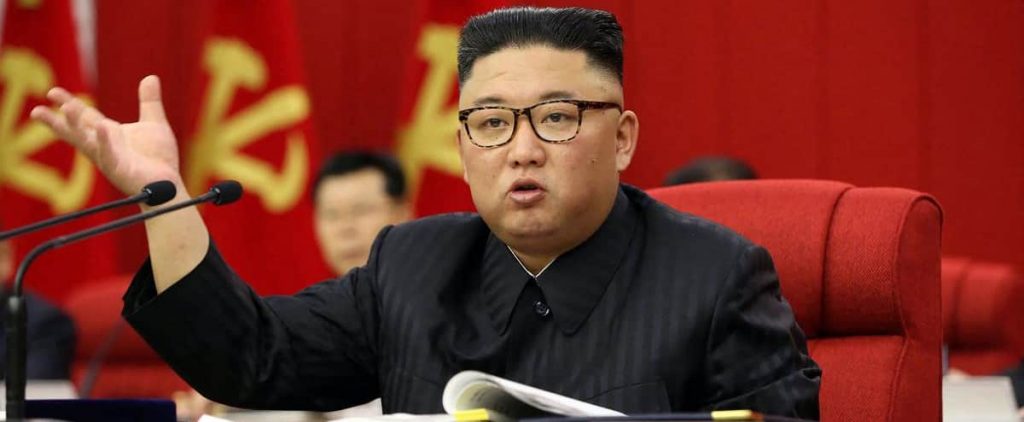
State media reported Wednesday that North Korean leader Kim Jong Un has acknowledged that the country is facing a “tense food situation.”
Also read: North Korea, “number one in the world” online robbery
The economy, which is burdened by multiple international sanctions imposed in response to banned military operations, has long been plagued by severe food shortages.
Last year, the coronavirus pandemic as well as hurricanes and floods dealt a severe blow to its economy.
At the plenary meeting of the ruling Workers’ Party Central Committee, Kim’s official North Korean agency KCNA reported on Wednesday that the economic situation had improved and industrial production had increased by 2% compared to the previous year.
However, the leader admitted that he faced a “series of difficulties” to overcome many “challenges”.
“The food situation is now tense as the agricultural sector has not been able to reach the cereal production target due to the damage caused by last year’s cyclones,” Kim said.
In the summer of 2020, thousands of homes and farmland were destroyed by floods and storms.
Kim called for action to be taken to mitigate the consequences of these natural disasters, saying “ensuring good crops” is a “priority.”
At the meeting, KCNA said it had raised the “permanent status” of the coronavirus pandemic.
The North was one of the first countries to impose strict health restrictions, including this decision to close its borders to prevent the spread of coronavirus and especially to China’s neighbors.
The regime claims that the epidemic has not reached its climax, which many experts suspect.
Trade with Beijing, the regime’s first economic and diplomatic support, was reduced to a heartbeat.
But this loneliness came at a high financial cost, with Kim realizing the difficulties his country was facing in April. In this way he called on his lieutenants to lead a “new” forced march “, if the population was a little harder, to help them cope with the difficulties.
The expression “Forced March” was used in the north to refer to the 1990s drought, after aid was cut off from Moscow after the Soviet collapse.
The UN Office for the Coordination of Humanitarian Affairs (OCHA) estimates that the pandemic has worsened the situation in the north, which requires 10.6 million people.





More Stories
Allegations of corruption Qatar warns of ‘negative impact’ of European measures
USA: Famous “Hollywood cat” euthanized in Los Angeles
The campaigner who called for the shooting of Ukrainian children has not been charged